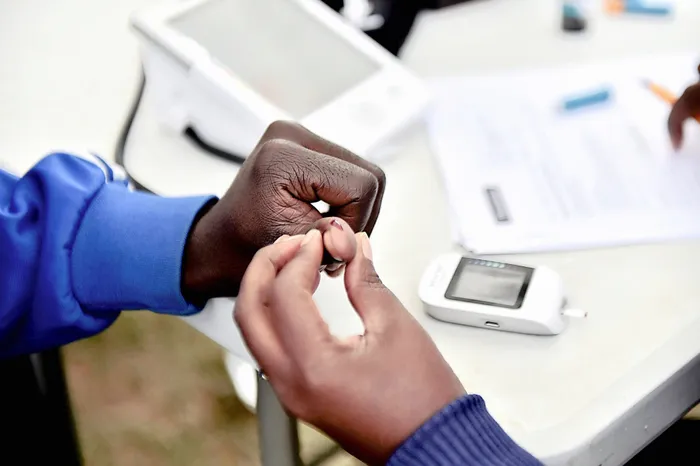UWC study finds traditional medicine could help safeguard fertility in diabetic men

Traditional medicinal plants may offer new solutions for protecting fertility in diabetic men, according to new research.
Image: File picture: Nokuthula Mbatha/ Independent Newspapers
Traditional medicinal plants may offer new solutions for protecting fertility in diabetic men, according to the new study.
The research study by the University of the Western Cape (UWC) and the Cape Peninsula University of Technology (CPUT) warned that as global diabetes rates continue to rise, cases of male infertility linked to elevated blood sugar levels are also likely to increase.
Published in the Journal of Herbmed Pharmacology, the review found that hyperglycaemia - high levels of glucose in the bloodstream - contributes to reproductive damage in men through oxidative stress and inflammation.
Oxidative stress occurs when the body is unable to maintain a balance between disease-fighting antioxidants and harmful molecules known as "free radicals." Excess free radicals can damage DNA and cells, and in the male reproductive system, this leads to weakened antioxidant defences and declining sperm quality.
Globally, about 15% of couples experience infertility, with male-related factors responsible for more than 40% of cases, according to the World Health Organization. In South Africa, an estimated 2.3 million people are living with diabetes, making the findings particularly relevant as the country marked World Diabetes Day on Friday, November 14.
The study reviewed both animal and early human research and found that conventional diabetes treatments focus largely on lowering blood sugar, while overlooking underlying processes that contribute to long-term complications, including male infertility.
Dr Chinyerum Opuwari, senior lecturer in UWC’s Department of Medical Biosciences and one of the researchers, said targeting inflammation and oxidative stress may be just as important as glucose control. She said traditional medicinal plants used across South Africa, Nigeria, India, and China could play a key role in providing affordable complementary therapies.
Plants such as Cleome rutidosperma, Alpinia officinarum, Retama raetam, red onion extracts and Turnera diffusa have demonstrated antioxidant and anti-inflammatory benefits while improving sperm quality, the study found. In some trials, raw cinnamon and date seeds improved glucose regulation and antioxidant status even more effectively than standard medication such as metformin.
Dr Opuwari said South Africa’s rich plant biodiversity, accounting for about 10% of the world’s flora, represents a largely untapped resource in tackling major public health challenges, including diabetes, HIV, TB, and heart disease.
“With 60-80% of South Africans, particularly those in rural communities, relying on traditional medicinal plants as their primary healthcare resource due to limited access to Western medical facilities, there is an urgent need to scientifically validate these indigenous practices,” she said.
She added that documenting and researching traditional medicinal knowledge not only strengthens healthcare policy but also helps preserve cultural heritage at risk of disappearing due to rapid urbanisation.
“By establishing an evidence base for traditional plant medicines, this research can inform health policy, facilitate the integration of traditional and Western medical practices, and ultimately contribute to more sustainable and culturally appropriate healthcare solutions tailored to South Africa's unique socioeconomic and epidemiological landscape,” she said.